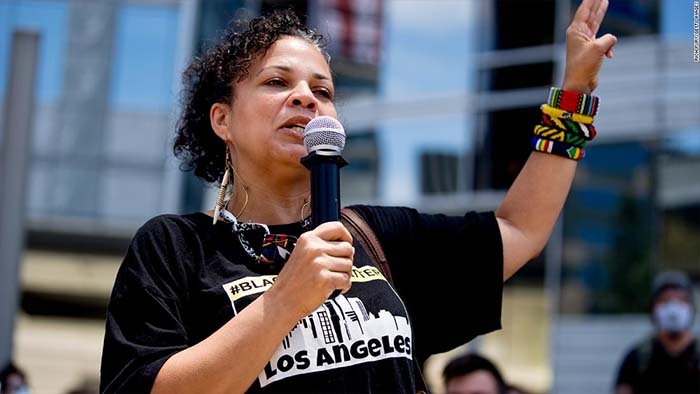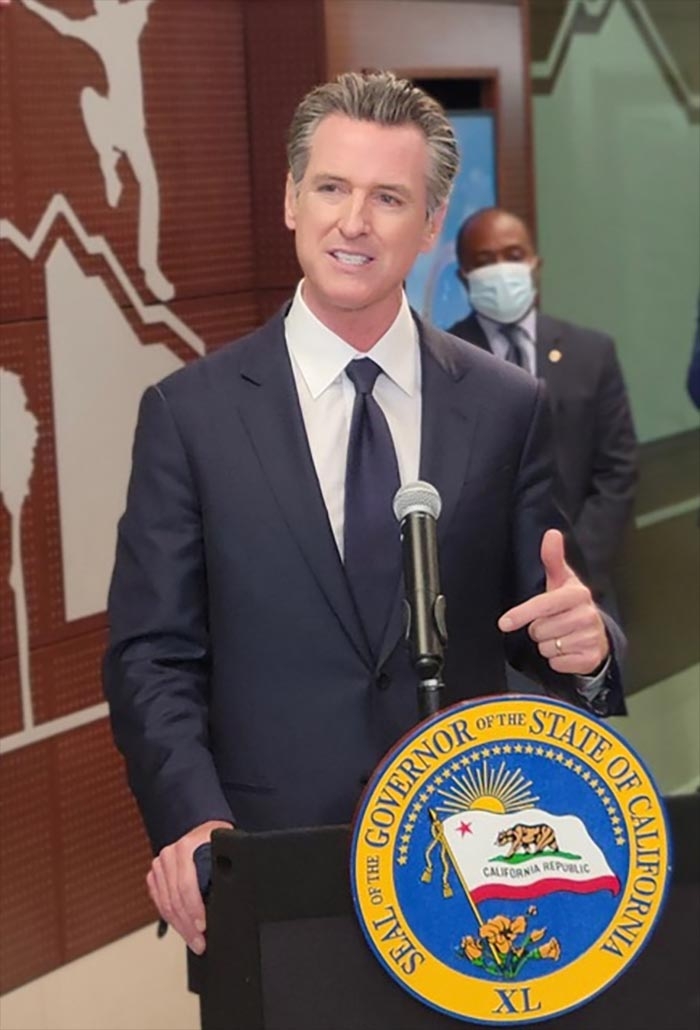
Steven Vargas | California Black Media
Now that both Moderna and Pfizer COVID-19 vaccines have been authorized by the FDA and are beginning to roll out, hesitancy is growing among Americans about receiving them. According to a recent survey by COVID Collaborative, a bipartisan organization that provides recommendations to governors on their COVID response, only 14 % of Black Americans believe the vaccine will be safe. Only 18 % think it will be effective in preventing the coronavirus.
Black Lives Matter L.A. addressed the uncertainty regarding the vaccine in their most recent installment of “This Is Not a Drill, “Why Black Folks Are Wary of Coronavirus Vaccines,” on Dec. 17. The virtual forum brought together medical professionals and activists to discuss the pros and cons of the vaccine. They also addressed the deep-rooted fear in the Black community about having to receive it – especially if the government or employers mandate it.
Dr. Gina Guillaume, Community Medicine Fellow at the Harbor-UCLA Medical Center, opened the session by explaining that much of the fear around the vaccine comes from the long history of medical malpractice against the Black community.
“I took the Hippocratic Oath to serve and to protect my patients, to prevent disease, but unfortunately, that Hippocratic Oath was not offered to a lot of African Americans for centuries,” Guillaume said. “Instead, they have been giving involuntary treatment, painful treatments, harmful more than beneficial treatments in the past. And it has caused a lot of distrust.”
Guillaume said the distrust is warranted but also puts lives at risk. By Thursday Dec. 17, intensive care unit capacities in Southern California reached 0% capacity. According to LA Public Health, there were 16,500 new cases and 96 new deaths in Los Angeles County on Dec. 18. That number has continued to grow with new record-breaking numbers reached, almost daily.
Guillaume stressed the importance of the vaccine at this critical time of the pandemic.
“My fear is: if we as a community do not get vaccinated, that the gap that we have — the disparities will continue to widen,” she said. “Then the risk of not getting the vaccine might be greater because of all of the complications and the surges that we are seeing.”
The way the coronavirus has disproportionately affected Black and other ethnic minorities helps to fuel the urgency and anxiety about making sure those communities have access to preventive treatments. Blacks are 1.4 times more likely to get infected and 3.7 times more likely to be hospitalized compared to Whites, according to the CDC. However, the disproportionate effects of COVID-19 are not biological. They are situational, as Harvard Medical School student LaShyra “Lash” Nolen explained.
“There have been studies that have come out that have shown that if you look at a White person and a Black person who enter a hospital, and both have COVID, both have the same likelihood of leaving that hospital perfectly fine,” Nolen said. “What they’ve shown is that it’s really what happens out in the community because these folks are more likely to be essential workers because they have these chronic conditions that are exacerbated by racism. That is what is killing Black people.”
Humanitarian Rizza Islam shared that his hesitancy to take the vaccine comes from the uncertainty of the vaccine’s effectiveness and the history of medical malpractice on the Black community dating back to the Tuskegee Syphilis Study and before. Islam cited the 2011 Bruesewitz v. Wyeth Supreme Court decision that concluded vaccines are “unavoidably unsafe.”
“Everyone in the medical field should know that the only surefire way or closest to 100% guarantee to be completely safe from viruses is to have a strong immune system,” he said. “So, the only guaranteed way is to build up the innate immunity, which is inherent within all of us, which is why we’re alive today.”
Islam believes the issue isn’t if the vaccine works or not, it is a matter of providing people with the option of whether or not to take it.
“They [officials and institutions] are pushing to indirectly mandate it by stating you cannot go to school, work, travel, et cetera, if you do not receive it,” he said.
For BLM-Los Angeles co-founder Melina Abdullah, she’d rather wait to take the vaccine until complications are known. Last week, after Pfizer’s vaccine was greenlighted, cases of allergic reactions were reported.
“It’s important for me to watch it play out on them first,” Abdullah said. “I want to watch what happens over the period of years. Like, are they going to develop a third arm? I don’t know.”
Although the panelists had differing opinions about the safety of the vaccine, they all agreed that it should be up to the individual to decide whether or not to take it.
“I think it’s important for people to take their time to answer the questions that they need, but just know that the more time that you take, there is going to be this heightened risk,” Nolen said. “But if that’s okay for you, then that’s okay for you. And I don’t think that anyone should force you to do anything, but you should definitely make the best decision for yourself and your community.”




